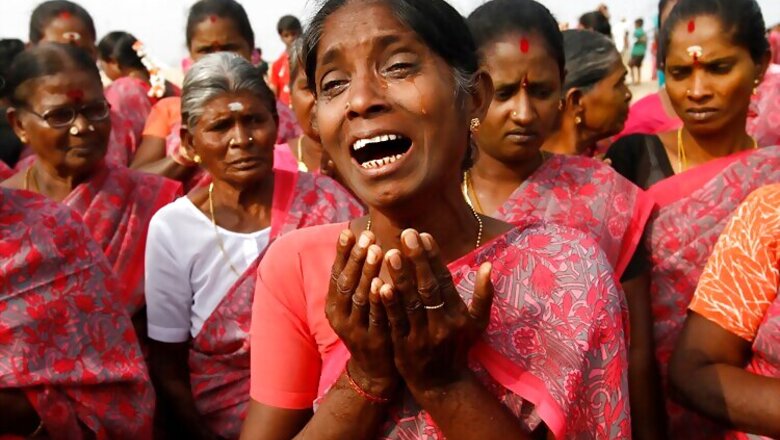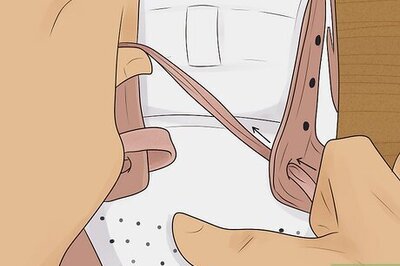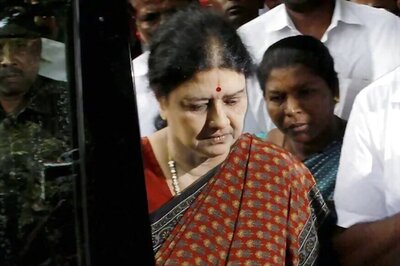
views
Jaffna: Shunned, destitute and pushed into prostitution in some cases, Sri Lanka's Tamil widows have
returned to northern Jaffna since the end of the separatist war only to discover they are not welcome even in their homeland.
Now, six years after the war ended, the women who fled the fighting on the peninsula in their thousands are pinning their
hopes on the nation's new president for a better future for their families.
"Widows are despised in our society," said Baskaran
Jegathiswari, 50, fighting back tears at her home in Achchuveli village in Jaffna, heartland of Sri Lanka's ethnic Tamil minority.
"People look down on us. They think we bring bad luck," said Jegathiswari, who lost her husband to military shellfire just months before the war ended in 2009.
The women, whose husbands were killed or are officially still listed as missing, are closely watching President Maithripala Sirisena who took office in January pledging reconciliation to "heal broken hearts and minds".
Official figures show 27,000 widows head households in Jaffna, where the conflict was centred, while local politicians put the figure much higher.
"I can't think of rebuilding my life now," said widow Evin Selvy who struggles to feed her family, earning 500 rupees ($ 3.80) a day as a farm labourer. "But I hope the new government will make it better for my three daughters."
Having taken refuge elsewhere in the north, Selvy returned to Jaffna in 2009 to find her home and the rest of her village destroyed in the fighting. After grabbing just a handful of possessions, the 45-year-old had fled in 1990 with her husband, who was killed by military shelling in the war's final months.
She and her daughters now live in a hut thrown up alongside their house, which has been partly rebuilt with funding from an Indian government project for war victims. But they cannot afford the remaining 200,000 rupees needed to finish it.
At least 100,000 people were killed in the war between 1972 and 2009 when the military finally crushed Tamil rebels fighting for a separate homeland for the ethnic minority.
Thousands are still unaccounted for, including suspected rebels rounded up by security forces or who surrendered in the conflict's final phase and then disappeared.




















Comments
0 comment